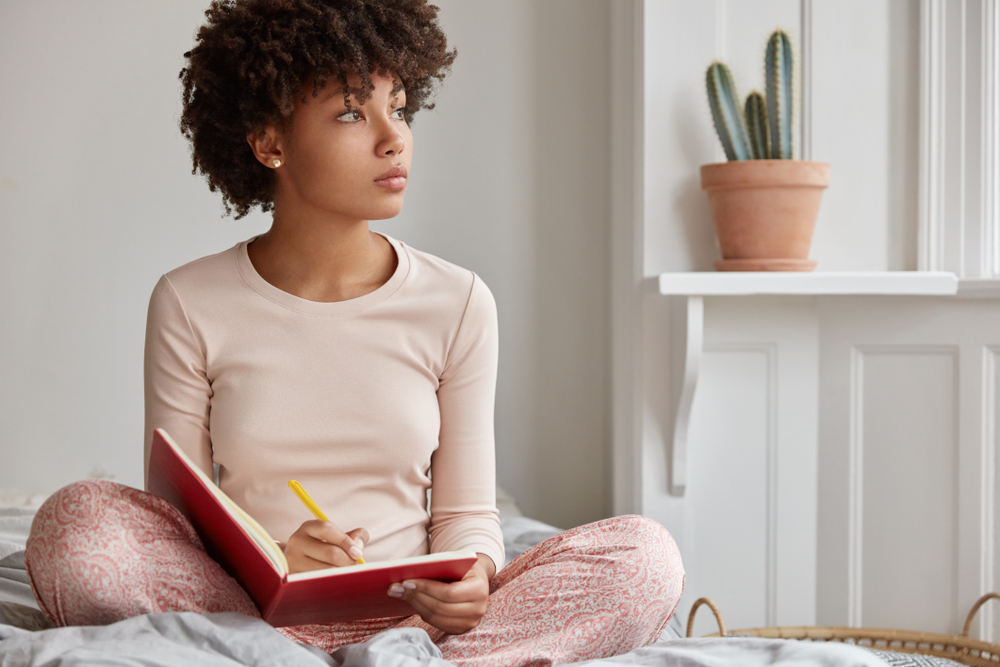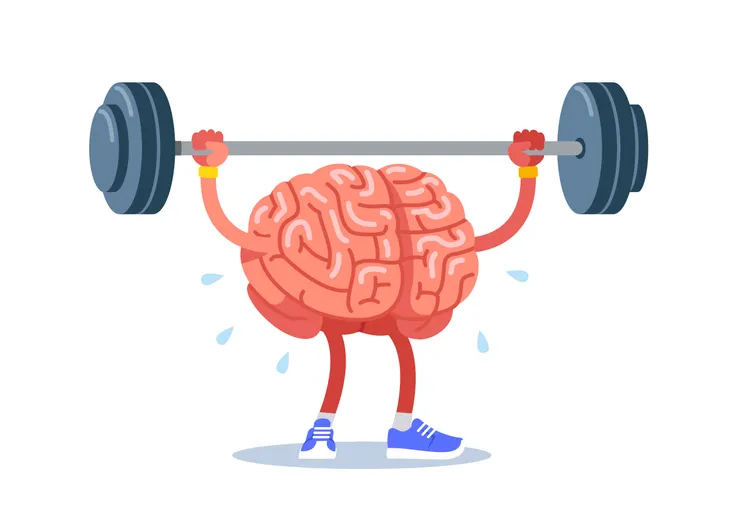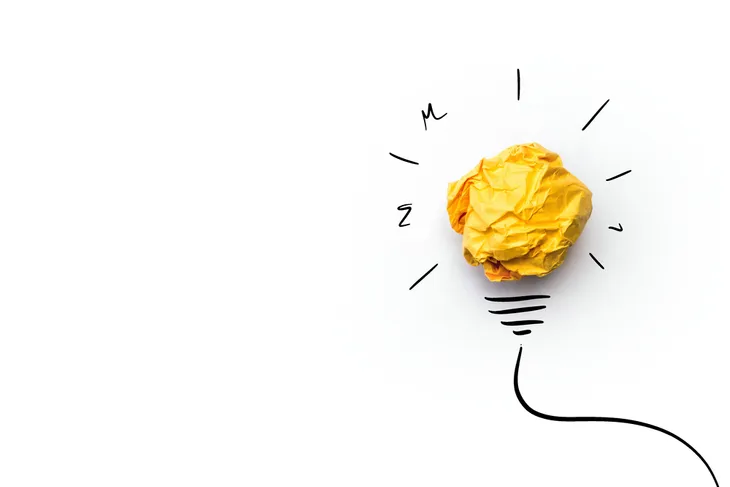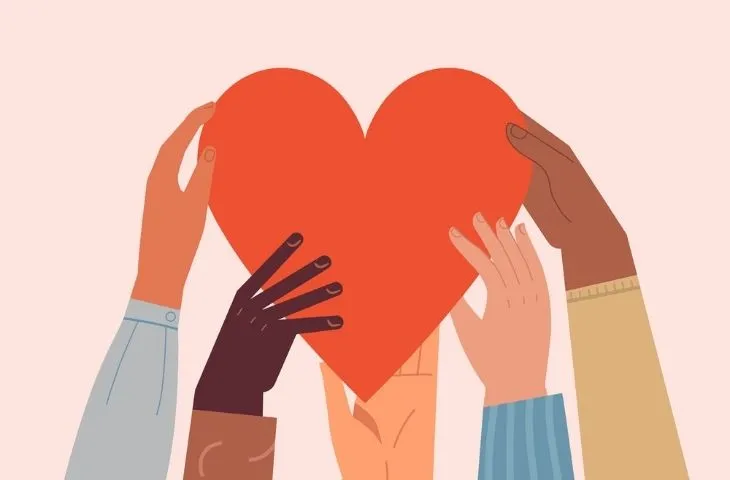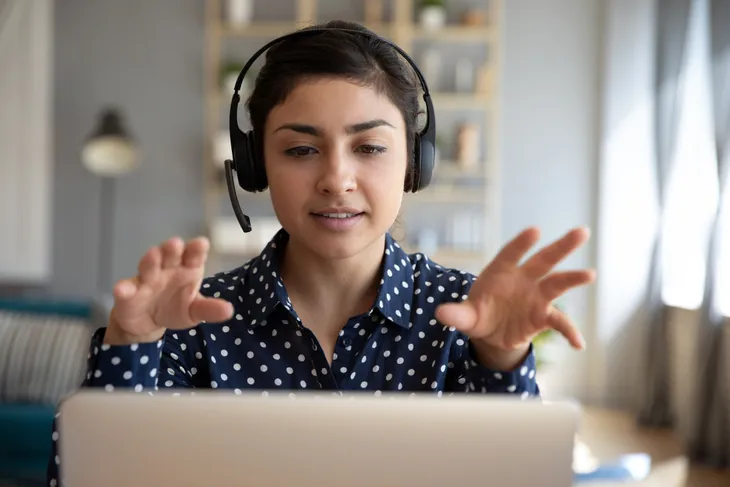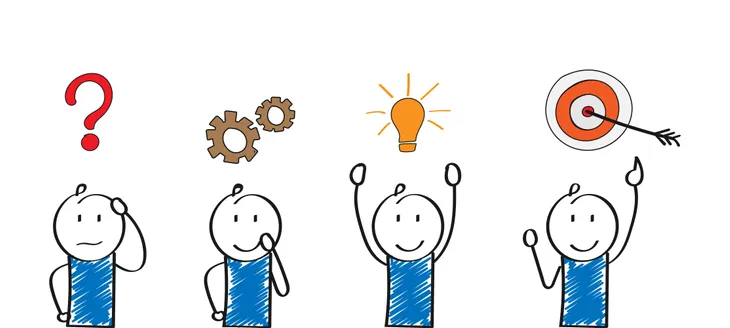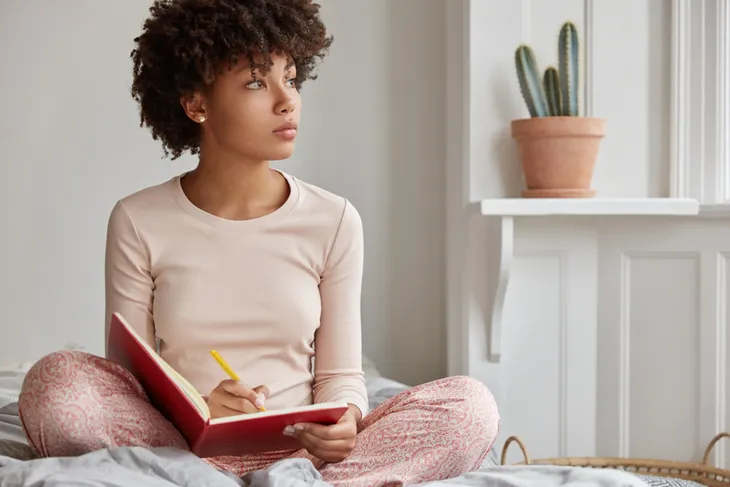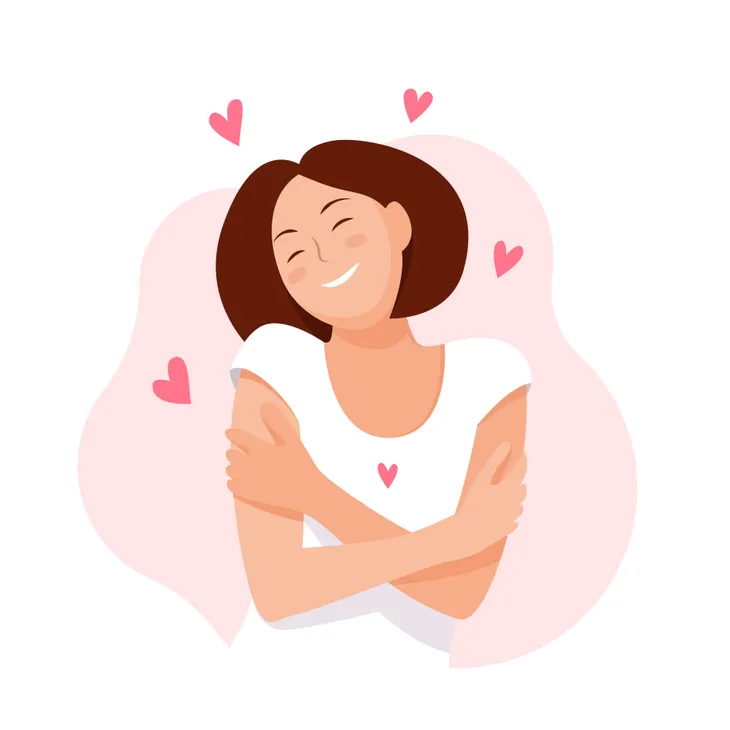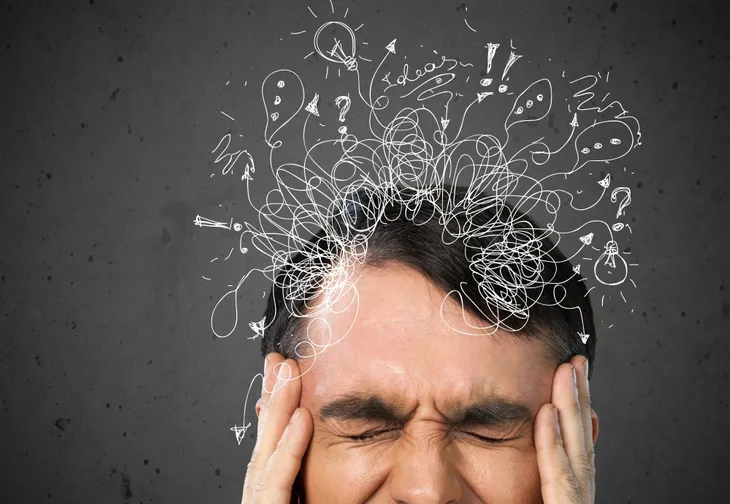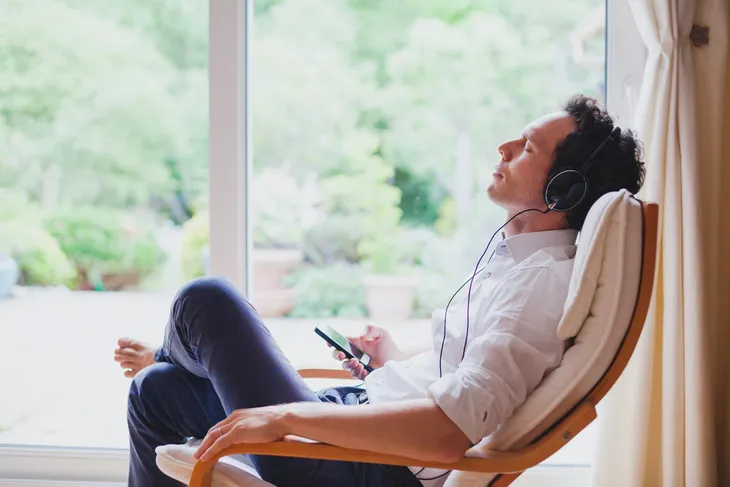- Socializing is important for our physical and emotional wellbeing, but alone time is beneficial for our mental health.
- Allocating a little alone time on a daily basis can increase productivity, reduce stress, boost creativity, and make us more empathetic.
- Make it more attainable by scheduling time each day, doing activities that you enjoy, and avoid any distractions like social media.
Alone time — people either love it or hate it. Personally, I love it. It’s a great way to recharge and focus on my own self-care. But for lots of other people, they refill their cup by engaging and socializing with others. It all comes down to personal preference. At the end of the day we are social creatures, social interaction is a necessity, but there’s no denying alone time has some pretty amazing benefits. Even if it is just a few minutes.
In fact, research has shown that alone time can be beneficial for our mental health. Social connections focus more on physical and emotional well-being, while alone time benefits our mental health. It’s considered self-care and unfortunately, a lot of people find it hard to take the time to invest in themselves (as silly as that might seem). We’re all busy and it’s hard to find the time to just sit in solitude. But the busier a person is, the more likely they could benefit from some alone time.
If you’re interested in learning more, here are just a few of the ways alone time can benefit your health…
Builds Mental Strength
As we’ve already mentioned, we’re social creatures who thrive on connectivity with others. But being alone has its benefits too. According to Forbes, people who are able to tolerate being alone are happier, have better life satisfaction, stress management, and experience less depression.
Just like we can build our physical strength from working out and going to the gym, we can build mental strength from times of solitude. “Being alone can help you build mental strength,” says Cynthia Catchings, LCSW-S, CFTP, and Talkspace Senior Therapist. This is especially true for people who do it over the long-term and not just as a one-time thing. A lot of people struggle with being alone because they feel like they need constant reassurance from others or they just don’t want to have to sit alone with their thoughts. Being alone with difficult emotions like fear, anxiety, hope, and dreams is hard, but you’ll be mentally stronger from doing it.
Enriches Your Social Life
This might seem counter intuitive, but VeryWellMind points out that living alone can actually enrich a persons social life. Researchers have found that people who live alone actually have richer social lives. This might be because they have to leave their home in order to get that social interaction. They spend so much time alone that they really prioritize socializing with others. And because they have alone time at home, they’re less likely to be burnt out from social interaction or bogged down with other peoples needs.
VeryWellMind also references the book “Going Solo” by sociologist Eric Klineberg who notes that “one in seven U.S. adults lives alone. Klineberg found that not only were these adults not lonely, many actually had richer social lives.”
Boosts Creativity
Social stimulation is good, but there are times when it’s not necessary or even beneficial. Alone time can work wonders for the brain when it’s time to think outside the box or get creative. There’s a reason artists like to retreat to a cabin in the woods or a private space to work. The quiet allows them to think clearly and gives their brain a chance to wander — promoting creativity. It can also help isolate the mind from outside pressures or influence and turn the focus inward.
According to VeryWellMind, research suggests that spending time alone can lead to changes in the brain that help fuel the creative process. “One study found that people who tend to purposely withdraw in order to spend time alone also tend to be highly creative people,” writes the source. Another 2020 study published in the journal Nature Communications found that “perceived social isolation (aka loneliness) lead to increased activity in the neural circuits related to imagination.” The brain will ramp up its creative networks to fill the void from a lack of social stimulation.
Increases Empathy
Having a close circle of friends or co-workers is very good for emotional well-being. It promotes connectedness and a feeling of being a part of something. But it can sometimes foster a “we vs. them” or mob mentality. It’s not a great environment for personal growth. On the other hand, research shows some alone time can be beneficial for promoting empathy.
A big part of this is cutting back on digital communication, says VeryWellMind. It might seem like an impossible task in today’s culture but researchers have found it can be extremely beneficial, particularly in teenagers. The source references one specific study that followed teens who went five days without communication devices. The results shows improved ability to interpret emotions and facial expressions.
Increases Productivity
This one probably isn’t that surprising, but being alone makes us more productive. A lot of office spaces are moving towards an open floor plan so that people can work together and communicate more easily. While socializing with coworkers or friends is fun and an important part of our emotional wellbeing, studies show we are more productive when we’re alone. Eliminating distractions and interruptions allows us to better concentrate and get more done in a shorter period of time.
If you’re someone who struggles with productivity – try removing yourself from any and all distractions (particularly social environments) and hunker down with you, yourself, and I. Invest in daily alone time and use it to accomplish any tasks or duties that need to get finished. Use leftover time to do things that are enjoyable and relaxing.
Exercise Better Problem-Solving Skills
Sometimes an extra set of hands or minds are helpful, but there are plenty of times when even two is too many. Ever heard the expression, “too many cooks in the kitchen?” Decisions that pertain to you and your happiness are best made solo. Consulting with close friends and family is fine, but ultimately, you’re the one who has to live with the decision so it’s important to value your own opinion above others.
You’ll find that time spent alone with your thoughts and feelings will help with making important life decisions. “When you’re decisive about your life, you convey a very clear message that you trust yourself,” writes Elite Daily. “When you trust yourself, the way you interact with the rest of the world unfolds positively.”
Reduces Stress
Stress is something we all struggle with whether you’re working 6 days a week or a stay-at-home mom. We all have things in our life that stress us out which is why it’s important to take time to rest and relax. Spending time alone is a great way to reduce stress. According to a clinically reviewed blog on Talkspace, a 2017 study that was part of the “Solitude Project” found that people who choose to spend time alone experience stress relief and relaxation during this alone time.
“When we’re alone, the pressures of pleasing others and social interaction are off, which can be big stressors for some people,” explains the source. “Plus, many people choose to use their alone time to engage in relaxing activities like meditation, crafting, or yoga.”
Gives Time to Reflect
Many people get swept up in the hustle and bustle of everyday life which leaves little down time for themselves. At the end of the day (or throughout the day) there’s little time for self reflection. Talkspace points out that people are sometimes so busy they don’t have even a moment to process what’s going on in their life or what has happened in the past. Take some alone time to sit and reflect. Catch up with yourself and process how you’re feeling.
The idea of sitting in solitude and reflecting on current and past decisions might make some people anxious. If that’s the case, then it’s probably necessary. It doesn’t have to be a negative experience. Don’t spend this time rehashing or thinking about all the could have and should haves from the day. If that’s a struggle, use this time to count your blessings. Sit and think about everything you’re grateful for.
Not sure where or how to start? Use a journal. Write down thoughts and feelings from the day. Start by doing it on a weekly basis with the goal of moving to making it a daily habit. Eventually you’ll look forward to these few minutes of reflection and find that they are not only helpful, but have a positive impact on decision making in the future.
Get to Know Yourself
It might seem silly, but alone time is a great way to get to know yourself. During this time you’re not concerned about what other people are doing, what their opinion is, or how to impress them. You’re away from any and all societal pressures. This time is just about you. What do you want? What are your personal thoughts and opinions? How do you feel? These are little things that we sometimes don’t have time to sit and consider because we’re so busy worrying about everyone else.
Alone time is important for personal growth. Not only will you start to get to know yourself and gain insight into who you are as a person, you’ll likely become more confident. Confidence is knowing who you are and what you want. You don’t rely on what others think because you’ve formed your own well thought out opinions. The following saying is cheesy, but true: you need to learn to love yourself before anyone else can love you.
Improve Relationships
Absence makes the heart grow fonder…no literally! Taking time for yourself and stepping away from friendships or relationships can make them stronger. Relationships tend to be stronger when each person takes time for themselves. This is likely due to the fact that they’re happier and it’s all thanks to this investment in their self-care. This is most important in romantic relationships, but also works for friendships too.
VeryWellMind refers to a study published in the British Journal of Psychology which found that “highly intelligent people actually become less satisfied the more time they spend socializing with friends.” A strong network of friends and family is important, but taking time for yourself is equally as important. This time apart will likely make you appreciate those connections more.
Signs You Need Alone Time
Our bodies do a good job of telling us what it needs. When we need sleep, we feel tired. When we need to eat, we get hungry. These are more physical needs which tend to be easier to decipher than those related to mental health. But there will still be some key warning signs. VeryWellMind lists the following as key signs to watch for:
- Feeling short-tempered
- Easily irritated by even minor inconveniences
- Lose interest in socializing and social activities
- Feel overwhelmed or overstimulated
- Trouble concentrating
- Anxious about spending time with others
If things get this bad, don’t fret! It’s not hard to bounce back. A little alone time can go a long way in restoring your overall wellbeing. According to VeryWellMind, one study found that people “who reported spending approximately 11-percent of their time alone experienced fewer negative feelings in subsequent demanding social experiences.”
How to Spend Time Alone
People who don’t spend a lot of time alone with themselves are often people who are just too busy. For that reason, we’ve come up with some ideas of things to do in order to maximize the benefits and spend this “alone” time wisely. First thing to do is allocate time to yourself. Pick a specific time and plan accordingly. This will ensure the time doesn’t get interrupted or get forgotten. To eliminate any distractions and be fully present during this alone time, it’s a good idea to disconnect from social media or simply turn off your phone. This is time dedicated for you. Don’t be concerned about what other people are doing.
In addition to planning a specific time, it might also be a good idea to plan an activity to do during this alone time. VeryWellMind suggests reading a book, exploring a favorite hobby, or listen to some music. If you’re really stuck on what to do with this alone time, head outside for a walk. Not only does this provide alone time, it’s also good exercise which benefits our physical health. If the weather is nice you’ll enjoy some sunshine and fresh air!
